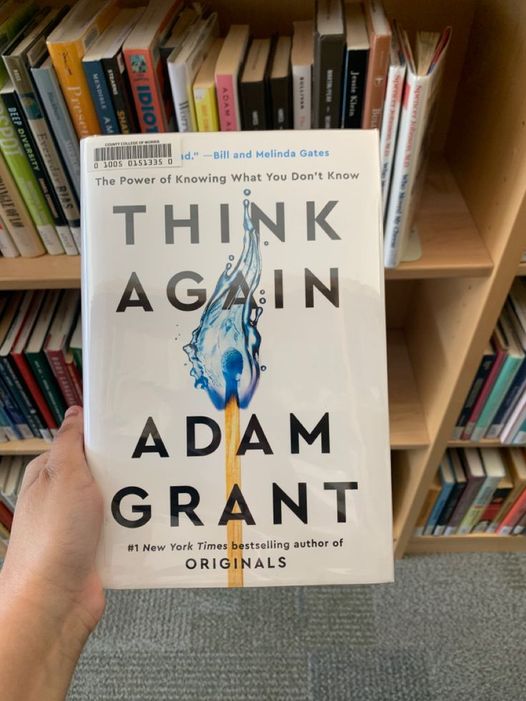10 lessons from Think Again: The Power of Knowing What You Don't Know by Adam Grant:
1. Rethinking is more important than thinking: In a rapidly changing world, the ability to rethink and unlearn is more crucial than simply being intelligent. It's about questioning your opinions, embracing others' perspectives, and adapting to new information.
2. Embrace cognitive flexibility: Cognitive flexibility is the ability to switch between different perspectives and mental states. It allows us to consider multiple viewpoints, avoid getting stuck in our ways, and adapt to new situations.
3. Seek out dissenting opinions: Surround yourself with people who challenge your thinking and expose you to diverse viewpoints. Engaging with different perspectives can broaden your understanding and help you identify blind spots.
4. Don't be afraid to be wrong: Making mistakes is an inevitable part of learning and growth. Embrace the discomfort of being wrong, view it as an opportunity to learn, and don't let the fear of being wrong hold you back from trying new things.
5. Reframe failure as feedback: Failure is not the end of the line; it's a source of valuable feedback. Analyze what went wrong, identify areas for improvement, and use the experience to make better decisions in the future.
6. Curiosity is the key to lifelong learning: Cultivate curiosity and maintain a childlike sense of wonder. Approach new ideas with an open mind, seek out new information, and never stop asking questions.
7. Challenge your assumptions: Regularly question your assumptions and beliefs. Consider alternative explanations, seek supporting evidence, and don't take things for granted.
8. Embrace ambiguity and uncertainty: Learn to tolerate uncertainty and navigate ambiguous situations. Embrace the unknown, experiment with different approaches, and don't be afraid to make decisions without all the answers.
9. Seek out mentors and coaches: Find mentors and coaches who can provide guidance, challenge your thinking, and help you develop your rethinking skills.
10. Create a culture of rethinking: Encourage open-mindedness, debate, and the willingness to challenge assumptions in your workplace or community. Foster an environment where rethinking is valued and encouraged.




